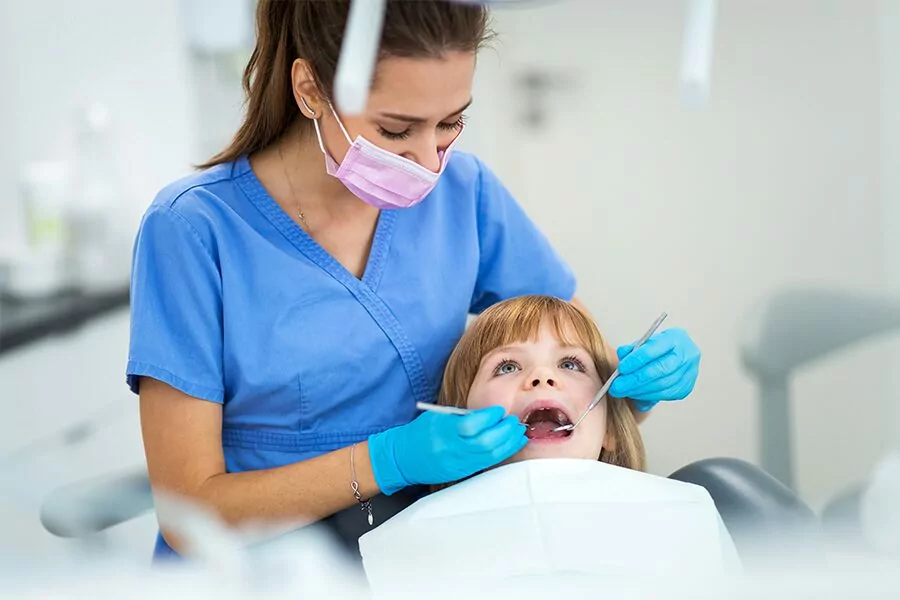Learn the Top Dentist Eugene Oregon Citizens Recommend for Exceptional Treatment
Learn the Top Dentist Eugene Oregon Citizens Recommend for Exceptional Treatment
Blog Article
An Overview to Typical Dental Conditions That Require a Dental expert's Treatment
Toothaches, for example, can be symptomatic of severe concerns such as cavities, broken teeth, or abscesses, each calling for certain interventions like dental fillings or root canals. Influenced wisdom teeth and jaw conditions can present substantial discomfort and difficulties.
Toothaches
Toothaches are a common dental problem that can vary from light discomfort to severe discomfort, typically indicating an underlying concern that needs expert attention. This pain can come from a selection of sources, including tooth decays, fractured or fractured teeth, and oral abscesses. Each of these conditions presents considerable risks if left untreated, potentially bring about more serious complications.
Oral tooth cavities, also referred to as caries, are caused by the build-up of plaque that wears down tooth enamel, leading to holes or pits in the affected teeth (dentist eugene or). Cracked or fractured teeth, on the various other hand, might arise from injury, grinding, or biting into hard items. These architectural damages can expose the delicate inner layers of the tooth, causing acute pain and enhancing the threat of infection. Abscesses hurt infections at the origin of a tooth or between the gum and a tooth, commonly arising from severe degeneration or neglected cavities.
Effective treatment of toothaches includes resolving the root cause. This might consist of dental fillings for cavities, crowns for broken teeth, or root canals and prescription antibiotics for abscesses. Very early treatment by an oral professional can stop additional damage and relieve discomfort, ensuring ideal oral health.
Gum Tissue Disease
Periodontal disease, a widespread yet typically forgotten dental condition, shows up with swelling and infection of the gums and sustaining cells. If left neglected, gingivitis can advance to periodontitis, a more severe kind defined by the damage of the supporting bone and connective tissue, inevitably leading to tooth loss.
The primary reason for gum tissue condition is bacterial plaque, a sticky, anemic movie that frequently creates on teeth. Poor oral hygiene, smoking cigarettes, hereditary predisposition, and certain clinical problems, such as diabetes, can exacerbate the risk of creating gum condition. Regular oral check-ups are essential for very early discovery and management of this problem.
Treatment for periodontal disease varies from expert dental cleansing and scaling to advanced treatments like origin planing and periodontal surgery, depending on the seriousness. Maintaining great oral hygiene methods, including brushing twice daily, flossing, and making use of an antibacterial mouthwash, can dramatically decrease the danger of gum tissue condition and promote much healthier gum tissues.
Tooth Cavities
Cavities, also called tooth decays, are a common dental condition characterized by the devastation of tooth enamel due to acid-producing bacteria in the mouth. These bacteria thrive on sugars and starches from food and drinks, generating acids that gradually wear down the enamel, resulting in tooth cavity development.
Early-stage tooth cavities might disappoint signs and symptoms, but as they proceed, they can trigger tooth pain, sensitivity to cold or warm, visible openings or pits in the teeth, and staining. If left untreated, dental caries can pass through much deeper layers of the tooth, possibly resulting in severe pain, infection, and even tooth loss.
Protecting against cavities involves a mix of good oral health methods and nutritional practices. Normal brushing with fluoride tooth paste, flossing, and regular dental examinations are essential. Dentists may additionally advise added safety nets, such as fluoride treatments and dental sealers, to secure teeth from degeneration.
Minor tooth cavities can be addressed with dental fillings, which restore the tooth's framework. Much more advanced situations may require crowns or also origin canal treatment if the decay has actually gotten to the tooth's pulp.

Impacted Wisdom Teeth
Impacted knowledge teeth are a prevalent oral issue that happens when the third molars, frequently described as knowledge teeth, fail to totally arise or straighten properly within the mouth. This problem typically arises from not enough room in the jaw or an uncommon development angle of the teeth. Impacted content wisdom teeth can result in a selection of issues, consisting of damages, pain, and infection to nearby teeth.
When knowledge teeth come to be impacted, they are frequently partially appeared or continue to be entirely below the gum tissue line. This partial eruption can create a path for microorganisms to enter the gum tissues, causing infections that show up as swelling, pain, and also fever. Additionally, affected wisdom teeth can put in pressure on bordering teeth, possibly creating crowding or shifting.
A comprehensive oral exam, generally involving X-rays, is vital for diagnosing affected knowledge teeth. Routine oral examinations are suggested to keep an eye on the problem and maintain oral wellness.
Jaw Disorders
Jaw conditions, jointly referred to as temporomandibular joint (TMJ) problems, encompass an array of conditions that impact the jaw joint and surrounding muscular tissues. These conditions can materialize through signs and symptoms such as discomfort or inflammation in the jaw, trouble chewing, a popping or clicking sound when closing the mouth or opening, and also persistent frustrations. TMJ conditions can arise from numerous aspects, including arthritis, jaw injury, or habitual habits like teeth grinding or jaw clenching.
Diagnosis of TMJ problems typically entails a comprehensive assessment by a dentist, consisting of a physical exam of the jaw, dental X-rays, and in some cases advanced imaging strategies like MRI or CT checks to examine the joint's condition. Therapy choices vary relying on the seriousness of the condition. Non-invasive techniques such as physical treatment, dental splints, and medications focused on minimizing swelling and pain are often first-line treatments. In much more serious cases, medical treatments may be necessary to correct architectural problems within the joint.
Very early treatment by a dental specialist is vital to avoid the progression of TMJ disorders and to preserve total oral health and wellness. Patients experiencing relentless jaw pain or dysfunction should look for timely analysis and treatment.
Conclusion
Toothaches frequently suggest underlying issues such as tooth cavities, split teeth, or abscesses, calling for additional info timely intervention. Impacted knowledge teeth and jaw problems likewise call for specialist attention to relieve discomfort and prevent more difficulties.
Dental cavities, also recognized as caries, are triggered by the build-up of plaque that deteriorates tooth enamel, leading to holes or pits in the influenced teeth. Abscesses are excruciating infections at the root of a tooth or between a tooth and the gum, typically resulting from serious degeneration or without treatment tooth cavities.

Furthermore, influenced wisdom teeth can exert stress on neighboring teeth, potentially causing crowding or changing.
Report this page